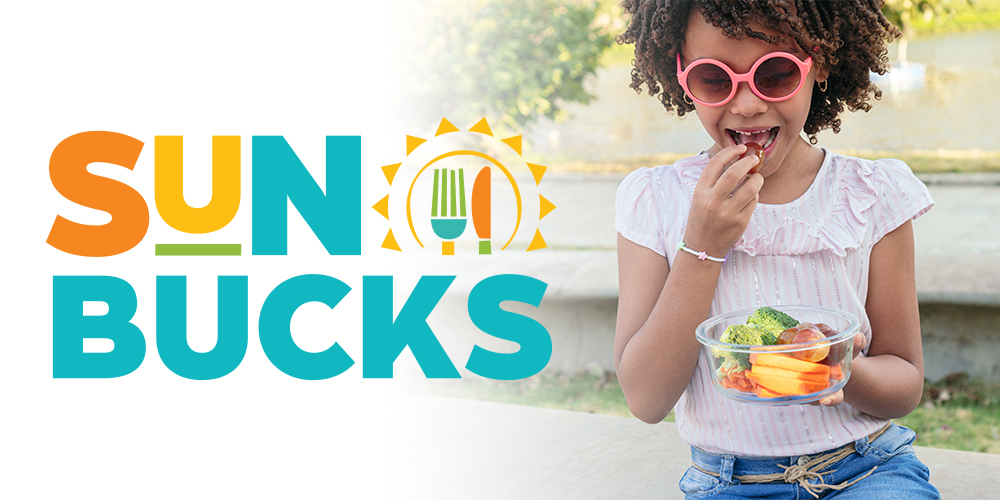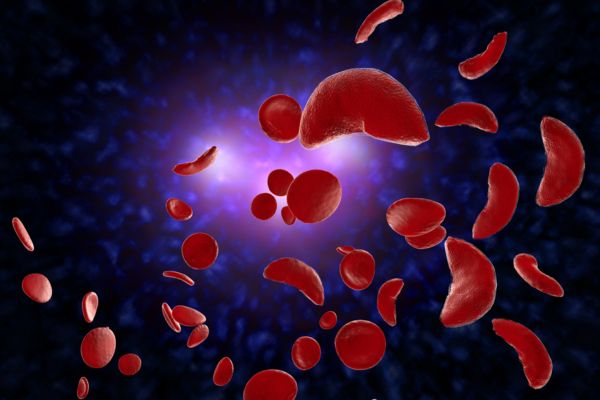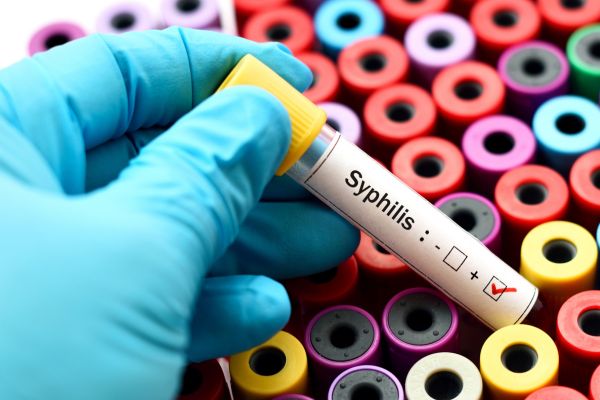|
|
|
|
 |
This week, NCDHHS and the Department of Public Instruction announced the launch of the new Summer Electronic Benefits Transfer (S-EBT) Program, or "SUN Bucks." The program is expected to provide food to nearly a million schoolchildren in North Carolina during the summer months. Families will receive calls, emails and texts this week to notify them about the new program.
Families who are eligible for the SUN Bucks program will receive a one-time payment of $120 per eligible child for the summer period. The SUN Bucks will be delivered to families on debit-like EBT cards, which can be used to purchase groceries at retailers that accept EBT, including most major grocery stores in North Carolina.
Your child may be eligible for a program if they participate in free or reduced-priced meals at school, participate in the Food and Nutrition Service's Supplemental Nutrition Assistance Program (SNAP), receive assistance from the Temporary Assistance for Needy Families (TANF) program, or qualify for Medicaid and have a household income below 185% of the federal poverty level.
If your child is already individually approved to receive free and reduced-price meals at school, you have until March 28, 2024 to update your address at your child’s school to make sure your child receives their SUN Bucks card at the correct mailing address during the summer months.
Please visit ncdhhs.gov/sunbucks for eligibility criteria and other information. The website will be updated as new information becomes available. |
|
|
|
 |
|
NCDHHS Aims to Increase Access to New Sickle Cell Disease Therapies
NCDHHS plans to participate in the new Centers for Medicare & Medicaid Services’ (CMS) Cell and Gene Therapy Access Model. This program is designed to increase access to recently approved gene therapies for people on Medicaid who are living with sickle cell disease, a genetic blood disorder that disproportionately affects Black Americans. The Cell and Gene Therapy (CGT) Access Model aims to improve health outcomes for people by providing treatments within a framework that lowers prices for states and ties payment to outcomes. NCDHHS has updated a white paper it issued in November when the U.S. Food and Drug Administration approved the historic therapies, Casgevy and Lyfgenia, which are now available on the market. In clinical trials, both therapies were found to reduce or eliminate the extreme pain experienced by people living with sickle cell disease. NCDHHS plans to submit an application to CMS this summer and could see benefits as early as January 2025. Learn about the care management and other Sickle Cell disease services NC has provided for decides through its Sickle Cell Syndrome Program.
|
|
 |
Fourteen NCDHHS HBCU/MSI Summer Internships Available
The application period is now open for NCDHHS’ Historically Black College/University and Minority Serving Institutions (HBCUs/MSIs) and Change Champion Internship program's Summer Cohort. The application period closes on March 22. The HBCUs/MSIs and Change Champion Internship program, in coordination with the Division of Public Health, is a component of the department’s workforce development initiative that encourages college students to seek careers in public health and government. The program is recruiting students from HBCUs and MSIs in North Carolina to allow more equitable opportunities for internship access within NCDHHS, which supports building a strong and inclusive workforce, one of the three NCDHHS strategic priorities. Fourteen internship positions are available for the HBCUs/MSIs Internship program. Sophomores, juniors, seniors, graduate and professional students and/or public health and human services majors are encouraged to apply. Undergraduate interns will be paid $20 per hour, and graduate or professional students will be paid $25 per hour. Spread the word and read a newsletter article to find out more about the program and how to apply. |
|
|
|
 |
NC Medicaid Now Covers Additional Syphilis Treatment
NC Medicaid will now cover an additional treatment for syphilis and congenital syphilis, Extencilline, as part of NCDHHS' ongoing effort to respond to the rise in syphilis and congenital syphilis cases and increase access to treatment. This new coverage is being added to address the ongoing national shortage of Penicillin G Benzathine (Bicillin L-A), the first-line treatment for syphilis. Congenital syphilis infections are the highest they have been in almost 20 years, leading to lifelong health impacts and infant deaths. The action by NC Medicaid to now cover this additional treatment is another example of NCDHHS' commitment to reverse this concerning trend and ensure NC providers have as many tools as possible to care for their patients. This work is being done so people have access to the information and treatment they need when and where they need it. Read a news release for more information and a statement from State Health Director and NCDHHS Chief Medical Officer Dr. Elizabeth Cuervo Tilson. See the NCDHHS provider resource page for the latest case numbers and more information on how NCDHHS is working to improve access to syphilis testing and treatment.
|
|
 |
Sparking Competitive Integrated Employment
Project Spark is a new program within NCDHHS designed to help people who are working in sheltered work programs shift into competitive integrated employment (CIE). It gives people with intellectual and developmental disabilities the support they need so that they can work at the kinds of jobs they want. What makes Project Spark different from other CIE initiatives is that its funding means that Spark can provide the kinds of employment and wraparound services that people need to be successful on the job – at no cost to job seekers. There are three Project Spark sites in Chatham Trades in Siler City, where the focus is on green energy jobs; Wake Enterprises in Raleigh, where the focus is on travel and tourism jobs; and Tri-County Industries in Rocky Mount, with a focus on jobs for essential workers. Spark relies on a team approach to employment. Transportation is built into the services clients receive, and each client gets true person-centered job retention services based on need. You can learn more about Project Spark on the NCDHHS website, or contact Bridget Hassan at 919-855-3619 or bridget.hassan@dhhs.nc.gov for more information. Read a newsletter article to find out more. |
|
|
|
|
|
|
|

